Filter by
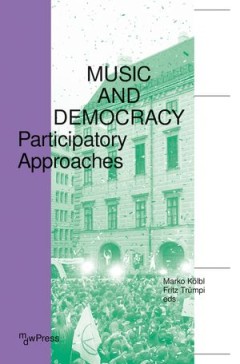
Music and Democracy: Participatory Approaches
Music and Democracy explores music as a resource for societal transformation processes. This book provides recent insights into how individuals and groups used and still use music to achieve social, cultural, and political participation and bring about social change. The contributors present outstanding perspectives on the topic: From the promise and myth of democratization through music techno…
- Edition
- 1
- ISBN/ISSN
- 9783839456576
- Collation
- -
- Series Title
- -
- Call Number
- 780
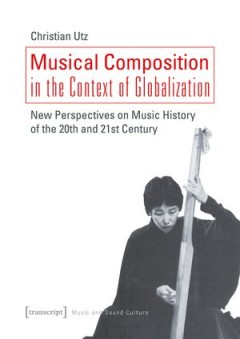
Musical Composition in the Context of Globalization: New Perspectives on Musi…
Since the early transformation of European music practice and theory in the cultural centers of Asia, Latin America, and Africa around 1900, it has become necessary for music history to be conceived globally - a challenge that musicology has hardly faced yet. This book discusses the effects of cultural globalization on processes of composition and distribution of art music in the 20th and 21st …
- Edition
- 1
- ISBN/ISSN
- 9783839450956
- Collation
- -
- Series Title
- -
- Call Number
- 780 UTZ m
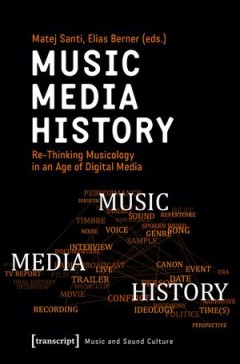
Music - Media - History: Re-Thinking Musicology in an Age of Digital Media
Music and sound shape the emotional content of audio-visual media and carry different meanings. This volume considers audio-visual material as a primary source for historiography. By analyzing how the same sounds are used in different media contexts at different times, the contributors intend to challenge the linear perspective of (music) history based on canonic authority. The book discusses A…
- Edition
- 1
- ISBN/ISSN
- 9783839451458
- Collation
- -
- Series Title
- -
- Call Number
- 780 MUS m

Digital Electronics for Musicians
Digital Electronics for Musicians is the perfect book for musicians who want to dive into the world of computer music and physical computing. This book is aimed at adventurous musicians who want to learn about music programming with Arduino, sensors, and Pure Data, and how to make new interfaces and even new instruments with that knowledge.You’ll learn the basics of the Pure Data and Arduino …
- Edition
- 1
- ISBN/ISSN
- 9781484215845
- Collation
- XXI, 490
- Series Title
- -
- Call Number
- 786.7

Philosophy of Music Education Challenged: Heideggerian Inspirations; Music, E…
Dalam antologi ini, yang merupakan kontribusi terutama pada bidang Filsafat Pendidikan Musik (PME), kami menawarkan perspektif yang agak tidak biasa. Kerangka filosofisnya berasal dari fenomenologi. Lebih tepatnya: semua penulis terinspirasi oleh pemikiran Martin Heidegger. Sejauh yang kami tahu, ini adalah pertama kalinya fokusnya ditempatkan sedemikian rupa pada filosofi Heidegger di bidang P…
- Edition
- 1
- ISBN/ISSN
- 978-94-017-9319-3
- Collation
- X, 256
- Series Title
- Landscapes: the Arts, Aesthetics, and Education (LAAE)
- Call Number
- 780.7 PIO p
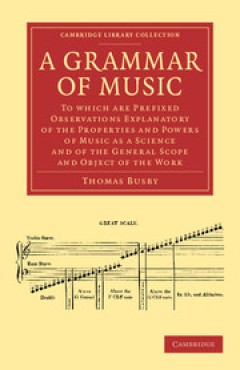
A Grammar of Music To which are Prefixed Observations Explanatory of the Pro…
The writer, composer and organist Thomas Busby (1754–1838) is best remembered for his highly entertaining Concert Room and Orchestra Anecdotes (1825), which paints a vivid picture of musical life at the time. The son of a coach painter, Busby was originally articled to the composer Jonathan Battishill but found the experience unrewarding. His compositions (many now lost) include songs, theatr…
- Edition
- -
- ISBN/ISSN
- 9781139833608
- Collation
- -
- Series Title
- Cambridge Library Collection - Music
- Call Number
- -
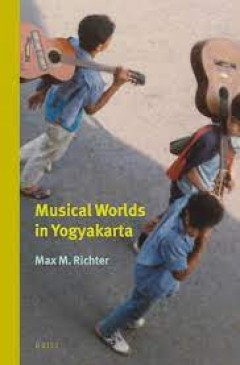
Musical worlds in Yogyakarta
Musical worlds in Yogyakarta is an ethnographic account of a vibrant Indonesian city during the turbulent early post-Soeharto years. The book examines musical performance in public contexts ranging from the street and neighbourhood through to commercial venues and state environments such as Yogyakarta’s regional parliament, its military institutions, universities and the Sultan’s palace. It…
- Edition
- -
- ISBN/ISSN
- 9789004253490
- Collation
- -
- Series Title
- -
- Call Number
- -
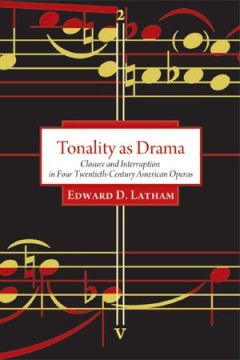
Tonality as Drama : Closure and Interruption in Four Twentieth-Century Americ…
This is an analytical monograph by a Schenkerian music theorist, but it is also written by one performer and enthusiast for another. Tonality as Drama draws on the fields of dramaturgy, music theory, and historical musicology to answer a fundamental question regarding twentieth-century music: why does the use of tonality persist in opera, even after it has been abandoned in other genres? Combin…
- Edition
- -
- ISBN/ISSN
- 9781574412499
- Collation
- 224 halaman
- Series Title
- -
- Call Number
- 700 LAT t
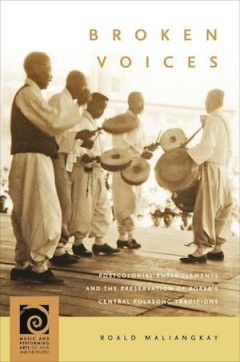
Broken Voices : Postcolonial Entanglements and the Preservation of Korea's Ce…
Broken Voices' is the first English-language book on Korea's rich folksong heritage, and the first major study of the effects of Japanese colonialism on the intangible heritage of its former colony. In 2009, many Koreans reacted with dismay when China officially recognized the folksong 'Arirang', commonly regarded as the national folksong in North and South Korea, as part of its national intang…
- Edition
- -
- ISBN/ISSN
- 9780824878337
- Collation
- 264 halaman
- Series Title
- -
- Call Number
- 700 MAL b
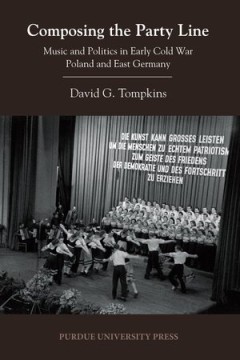
Composing the Party Line : Music and Politics in Early Cold War Poland and Ea…
Examines the exercise of power in the Stalinist music world as well as the ways in which composers and ordinary people responded to it. A comparative inquiry into the relationship between music and politics in the German Democratic Republic and Poland from the aftermath of World War II through Stalin's death in 1953, concluding with the slow process of de-Stalinization in the mid-to-late 1990s.…
- Edition
- -
- ISBN/ISSN
- 9781557537027
- Collation
- -
- Series Title
- Central European Studies
- Call Number
- 700 TOM c
 Computer Science, Information & General Works
Computer Science, Information & General Works  Philosophy & Psychology
Philosophy & Psychology  Religion
Religion  Social Sciences
Social Sciences  Language
Language  Pure Science
Pure Science  Applied Sciences
Applied Sciences  Art & Recreation
Art & Recreation  Literature
Literature  History & Geography
History & Geography